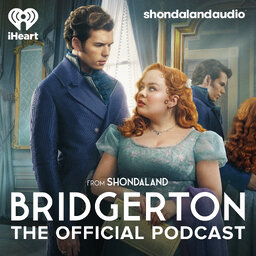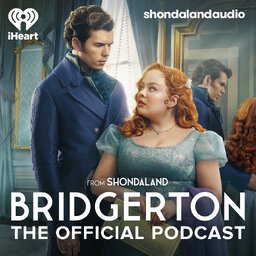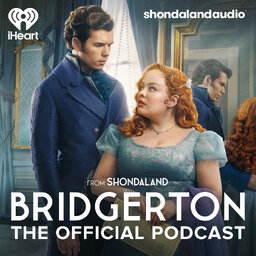Reflecting on the Magic: Shonda Rhimes and Betsy Beers Discuss Producing 'Queen Charlotte'
Welcome to the final episode of our reflections on "Queen Charlotte: A Bridgerton Story." This episode, we embark on a journey into the minds of Creator Shonda Rhimes and Executive Producer Betsy Beers to dig into their creative process.
Shonda a writer who we learn writes in her head, and Betsy, the self-described Shonda-whisperer, are the producing duo forged out of decades of partnership. They’ve captivated audiences around the world, breathing life into characters that are both peculiar and compulsive, royal and yet firmly planted on Earth.
Join us for this noteworthy conversation with Shonda Rhimes and Betsy Beers as they rediscover the magic that captivated them, making "Queen Charlotte" a story they simply needed to tell.
In 1 playlist(s)
Bridgerton: The Official Podcast
The beloved Shondaland series, Bridgerton, is back on your screens for season 3! With that, Bridgert…Social links
Follow podcast
Recent clips

308: Into the Light w/ Nicola Coughlan & Jess Brownell
46:28

307: Joining of Hands w/ Luke Thompson, Ruth Gemmell, and Tom Verica
53:48

306: Romancing Mr. Bridgerton w/ Polly Walker & Jessica Madsen
31:35
 Bridgerton: The Official Podcast
Bridgerton: The Official Podcast